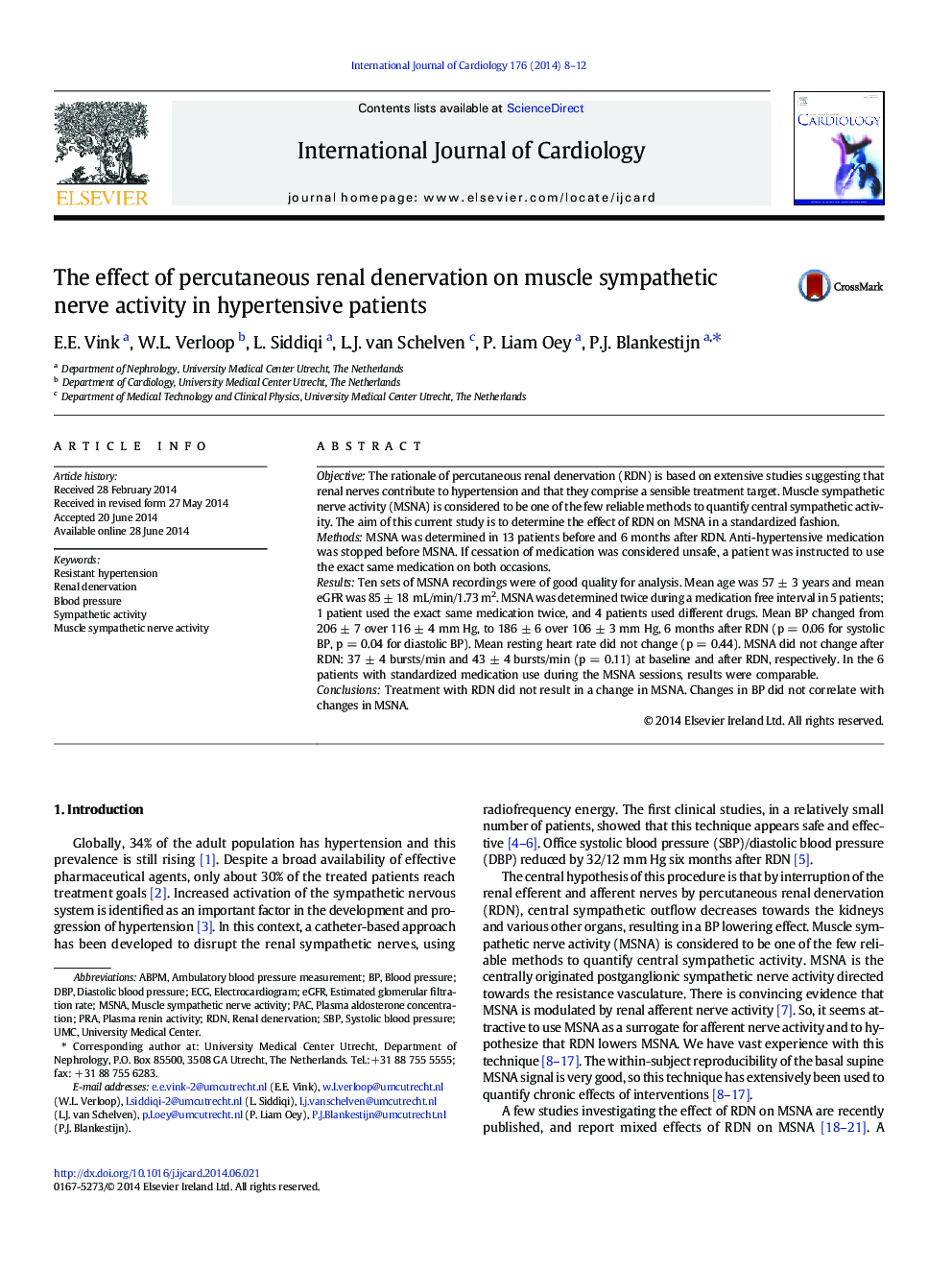| Article ID | Journal | Published Year | Pages | File Type |
|---|---|---|---|---|
| 5970637 | International Journal of Cardiology | 2014 | 5 Pages |
â¢We studied the effect of renal denervation on MSNA.â¢Treatment with renal denervation did not result in a change in MSNA.â¢Changes in BP did not correlate with changes in MSNA.
ObjectiveThe rationale of percutaneous renal denervation (RDN) is based on extensive studies suggesting that renal nerves contribute to hypertension and that they comprise a sensible treatment target. Muscle sympathetic nerve activity (MSNA) is considered to be one of the few reliable methods to quantify central sympathetic activity. The aim of this current study is to determine the effect of RDN on MSNA in a standardized fashion.MethodsMSNA was determined in 13 patients before and 6 months after RDN. Anti-hypertensive medication was stopped before MSNA. If cessation of medication was considered unsafe, a patient was instructed to use the exact same medication on both occasions.ResultsTen sets of MSNA recordings were of good quality for analysis. Mean age was 57 ± 3 years and mean eGFR was 85 ± 18 mL/min/1.73 m2. MSNA was determined twice during a medication free interval in 5 patients; 1 patient used the exact same medication twice, and 4 patients used different drugs. Mean BP changed from 206 ± 7 over 116 ± 4 mm Hg, to 186 ± 6 over 106 ± 3 mm Hg, 6 months after RDN (p = 0.06 for systolic BP, p = 0.04 for diastolic BP). Mean resting heart rate did not change (p = 0.44). MSNA did not change after RDN: 37 ± 4 bursts/min and 43 ± 4 bursts/min (p = 0.11) at baseline and after RDN, respectively. In the 6 patients with standardized medication use during the MSNA sessions, results were comparable.ConclusionsTreatment with RDN did not result in a change in MSNA. Changes in BP did not correlate with changes in MSNA.
